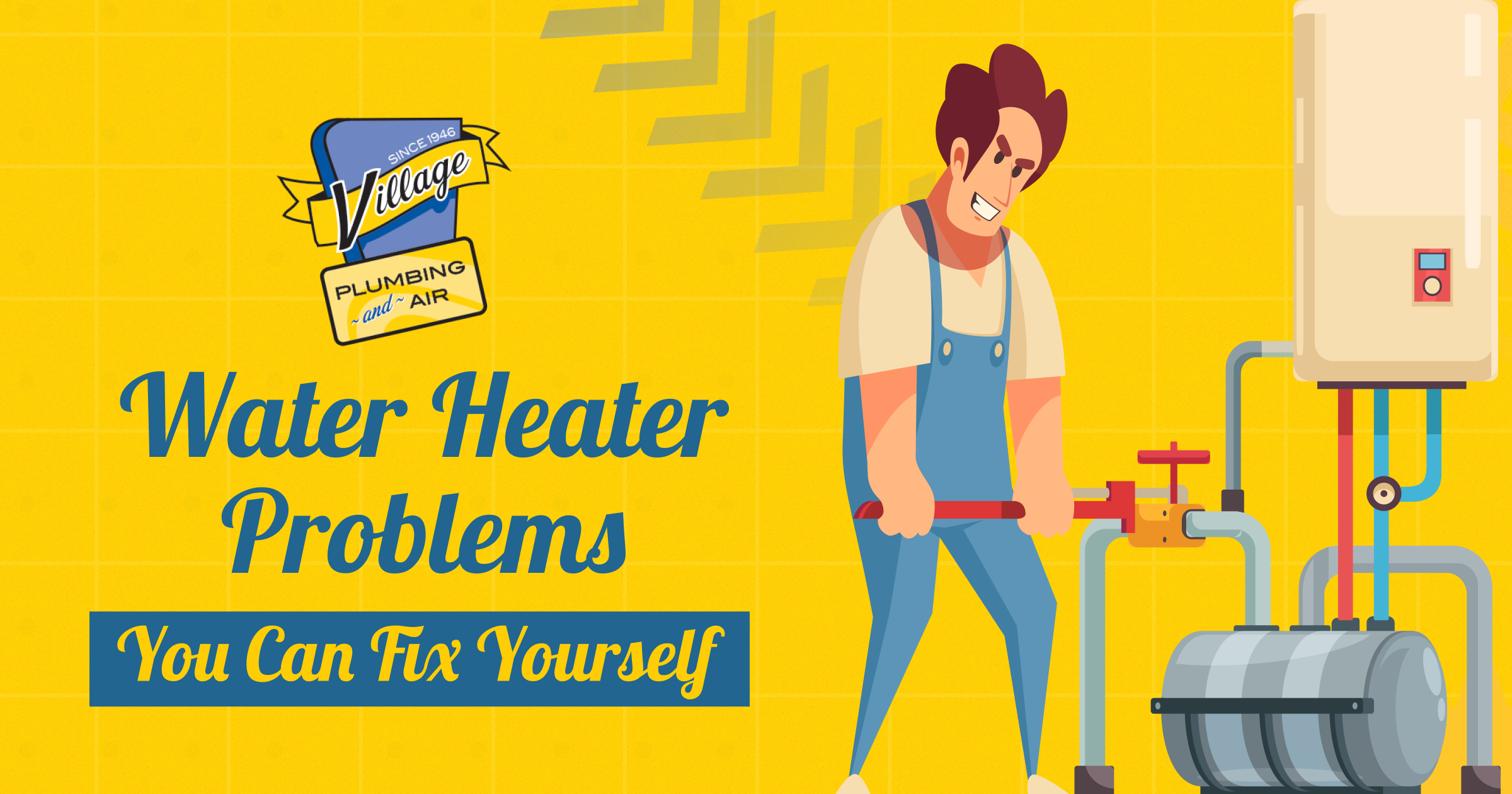A water heater differs from other appliances in that, if it develops a problem, you typically notice it right away. Changes in water temperature and visible signs of trouble should never be ignored. However, you can troubleshoot and resolve some issues yourself. These are some hot water heater problems that may or may not require a professional.
There’s No Hot Water
Check whether the unit is receiving power. If not, the circuit breaker may have tripped. Go to the electrical panel and switch the breaker off and then back on.
If the water heater doesn’t start up again, the high-temperature limit switch may need to be reset. To reset it, turn off the circuit breaker and remove the panel on the heater to access the upper heating element. After removing the insulation and safety guard, press the red reset button above the upper thermostat. Then replace all the components you removed and turn on the circuit breaker.
If these don’t fix your water heater problem, a heating element may need to be replaced.
The Water Is Too Hot
Scalding hot water is a dangerous situation, but one that’s easily resolved. It usually means the thermostat is set too high. Adjusting it lower should prevent burns and bring the water to a comfortable temperature. For most people, this is around 120℉, according to the U.S. Department of Energy. If water is heated to 140℉ or above, it risks scalding and makes the water heater less efficient.
To access the water heater’s thermostat, turn off the breaker, remove the access panel/insulation/safety guard, and use a non-contact voltage tester to verify no power is flowing through the wires. A water heater has two thermostats. Check the heat setting on both. If it’s high, lower it to 120℉ or a desired setting with a flathead screwdriver. Replace the components and turn the system on.
The Water Isn’t Hot Enough
You can try raising the thermostat temperature. However, lukewarm water is often due to a water heater problem you can’t fix yourself. It’s often a sign the unit has a faulty heating element, or that the hot and cold connections are crossed. A crossed connection is likely when the water supply is off and water still flows when the hot water faucet is turned on. You’ll need a professional to correct these issues.
The water heater may also be undersized. If so, you can try reducing demand by taking shorter showers, using a low-flow showerhead, and running the laundry and dishwasher at different times. But if the unit is properly sized and suddenly produces less hot water, a heating element may have failed.
The Water Heater Is Leaking
Look for loose plumbing connections. Tightening them can reduce or stop the leak, but be careful not to overtighten anything. You can also look for loose bolts on the heating element. If tightening them doesn’t stop the leak, the gasket may need to be replaced by a professional. Inspect the storage tank for leaks that indicate it’s corroded from the inside and it’s time to replace your water heater.
Water Is Rusty/Discolored
Brown, reddish, or yellow water from the faucet can mean there’s corrosion in the water heater tank. There may be corrosion in the pipes as well. Replacing the anode rod in the tank can sometimes resolve this hot water heater problem. If the water also has a rotten egg or other foul odor, there may be bacteria in the tank. A professional is usually needed to fix these issues unless you have experience servicing the tank.
Unusual Noise
Odd noises such as popping, banging, or hissing often come from boiling water, which occurs when the bottom of the tank overheats due to a buildup of sediment. Flushing the tank can get rid of the sediment.
If you have experience, you can flush the tank by turning off the gas or electricity and water supply. Once the water heater is cool, connect a garden hose to the drain valve and run it to a floor drain or outside location, and then turn on the hot water and open the valve. This will relieve pressure and let the water (and sediment) drain out.
Loud, unusual noises can also mean the heating elements are burning out. You will need a professional to replace them.
Village Plumbing Can Fix Your Water Heater Problems
Our experienced plumbers install, repair, and maintain water heaters. Familiar with all common hot water heater problems, they can quickly address issues big and small, including those caused by hard water and corrosion. To receive help, request service online or call (713) 526-1491 today
